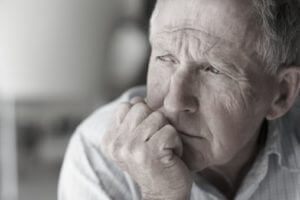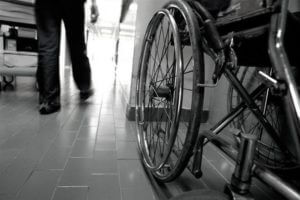Elder Abuse
What Is Elder Abuse?
As people grow older, they tend to rely more on others to help them with day-to-day living. This, unfortunately, increases the chances they will be mistreated or taken advantage of by someone they believe is helping them. Elder abuse occurs when a person harms or neglects a person in their care who is over a certain age. According to a study from the National Center on Elder Abuse, “between 1 and 2 million Americans age 65 or older have been injured, exploited, or otherwise mistreated by someone on whom they depended for care or protection.” Abusers can include doctors, nurses, home health workers, or others and their actions can take place at home, the home of a family member, or in an assisted living or nursing facility. As disturbing as this is, only one in 14 incidents are reported to the proper authorities.
Many elderly people who have been abused live in fear or may be too proud or embarrassed to speak up about it. Learning the signs of elder abuse and being ready to advocate for your family member is vital to protecting them from greater harm. If someone you love has been victimized, contact a Philadelphia elder abuse attorney for help.
Types of Elder Abuse
There are many forms of elder abuse, which can include the following:
- Physical Abuse – When caregivers physically cause injury or bodily harm. This can include hitting, shoving, kicking, burning, tying them to a wheelchair, or otherwise mishandling an elder. The signs of this kind of abuse show up as visible injuries, including cuts, bruises, burns, and bleeding. More severe signs of physical abuse can include broken bones and repeated injuries.
- Sexual Abuse – When an elderly adult receives sexual contact without consenting or does not have the ability to consent. This can include from making the elderly individual watch pornography, taking off their clothes, inappropriate touching, and rape. Physical signs that an elderly person is being sexually abused can be bruising in genital areas, bleeding from the genitals, and testing positive for sexually transmitted diseases.
- Emotional Abuse – When a verbal assault causes emotional damage and robs them of their dignity. A caregiver may yell at an elderly individual, threaten them, call them names, ignore their requests, and control who visits them and where they are able to go. This type of abuse can be more difficult to spot, but if you see signs of fear, depression, increased confusion, sudden changes in behavior, or trouble sleeping, that person may be experiencing emotional abuse.
- Financial Abuse – When a predator uses an elder’s naiveté or confusion on a topic for financial gain – such as identity theft, pyramid schemes, etc. The elder’s credit cards or bank accounts may be used without permission, signatures forged on checks, or they may even be forced to sign a new will or power or attorney. This is a very dangerous type of elder abuse that can have lasting effects. Signs this type of abuse has occurred include monetary withdrawals your loved one cannot remember, legal documents being changed seemingly out of nowhere, unpaid bills, and missing financial statements.
- Neglect – When a caregiver neglects to perform basic tasks and leaves the elder unable to perform them on their own. This can mean not giving the elderly individual food, water, clothing, well-maintained housing, medications, or not helping them stay clean, get dressed, and/or even pay the bills. Abandonment is another common type of neglect considered to be elder abuse. Signs that your loved one may not be getting the care they need include skin rashes, unkempt hair, dirty clothes, significant weight loss, bedsores, and missing assistive devices. Financial exploitation is one of the most underreported forms of elder abuse. Financial abuse victims only report one out of every 25 cases to the authorities. Cases often go unreported due to the elder’s relationship with the predator.
Lopez McHugh LLP: Philadelphia Elder Abuse Attorneys
It is horrible to see your loves ones abused in any way. If you suspect someone you care about is being subjected to any form of elder abuse, it is important to act immediately. This is essential in stopping the abuse and in collecting any evidence. First, try to privately talk to the loved one you suspect may be being abused. You can express that you think something may be wrong and you want to help. If they avoid the questions or get upset, they may be being abused. If you are able to, place hidden monitoring devices in their room to catch the abuse and have video evidence. It is also important to contact the authorities in order to fill out a report and begin an investigation into the abuse.
If someone you love, your parent, grandparent, or other elderly relative has been the victim of elder abuse in Philadelphia, contact our office immediately to discuss your options at no cost. Time limitations apply to any potential claims, so call us today to protect your loved one.







